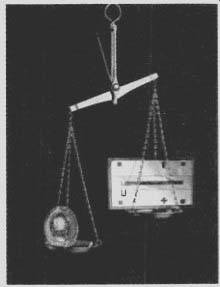Metal Tape, MC Cartridges, monster amps and digital records have finally met their match.
Your speakers are the most important part of your hi-fi. No matter what you drive them with, they're the only part of a system you actually hear. So, serious hi-fi buffs have usually been more demanding of speakers than any other component.
Now, even more pressure is being applied to speaker technology by a "state of-the-art" in sound that is racing ahead with innovations in both recording and play-back technique. Yet, improvement in most speakers is limited to "bits and pieces" added on to existing designs.
JVC took a different approach by developing a line of speakers based on the element by almost demands of tomorrow's "state-of-the-art" products.
We went back to ground zero by considering two factors.
1) The source: Modern studio engineers cram up to 32 tracks of gut-rocking bass, pounding percussion, close-miked vocals and sizzling cymbal and percussion onto a record with more technology and production breakthroughs every day.
2) The signal chain: Digital and direct disc mastering, moving coil cartridges, high-powered low THD amps and metal particle tape can seriously challenge any conventional speaker on the market today.
So we started with a Power-Ribbon tweeter that can turn 200 watts of power into crisp, precise, widely dispersed highs using a driver diaphragm nearly twice as light as most conventional dome tweeters. Crank a digital record or metal tape up loud and you get beautiful highs, not a puff of smoke.

The lighter it is, the faster it moves A conventional
dome tweeter outweighs the JVC PowerRibbon polymide ribbon element by almost
2:1.
We studied midrange cone flex and then computer designed a phenolic cone aluminum dome mid that achieves multi-octave pistonic motion with wide dispersion and low distortion for realistic instrumentals and intimate vocals.
And finally we determined why a woofer's cone can turn out flabby bass.
It's a cone.
All the exotic materials, coatings and magnet structures in the world just yield a more expensive woofer, not a better cone shape. Our computer designed it moves A Alpha woofer is a concave curve for maxi outweighs polymide ribbon mum rigidity, driven by a long-throw heat-resistant voice coil and massive ceramic magnet structure.
The result is tight low bass with depth, not boom.
When you mount these special drivers in a rose wood veneer enclosure and fine-tune them with our unique Phase-Moire Propagation technique, you have a design whose excellence needn't rest on a single "latest breakthrough." Rather, here is a total speaker design. for the world of sound yet to come.
So before you subject yourself to the cross talk of hundreds of speaker brands, call 800-221-7502 (NY State, 212-476-8300) or write us at 58-75 Queens Midtown Expressway. Maspeth, NY 11378 for your nearest JVC dealer.
One test-listen and you'll be ready for JVC.
Shown: Zero-5 3-way. 200W peak input. 35-50 000Hz. 92dB/W (1 M): Zero-9.3-way with additional differential resonance active 12" woofer. 300W peak input. 25-50.000Hz. 92dB/W (1 M).
Not shown: Zero-3.3-way with 10' woofer/same tweeter. and dome cone midrange. 150W peak input. 40-50. 000Hz.
US JVC CORP
Now you're ready for JVC.

(High Fidelity, Jan. 1980)
Also see: